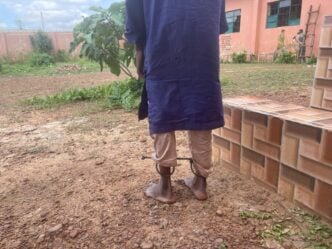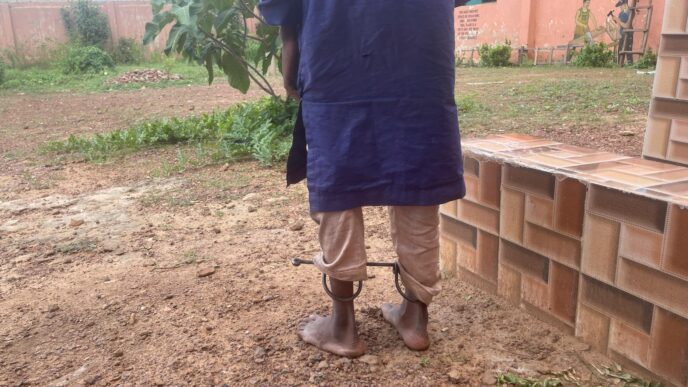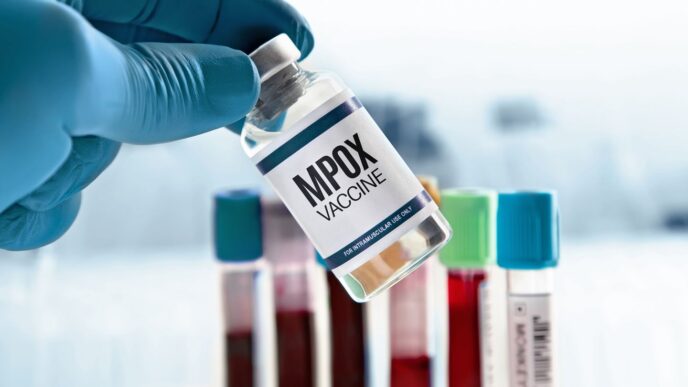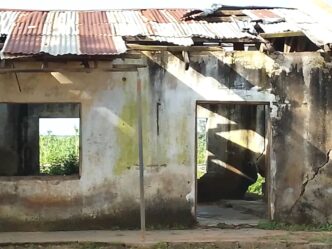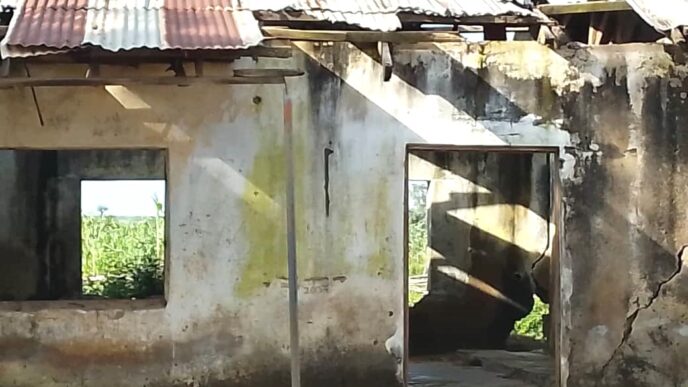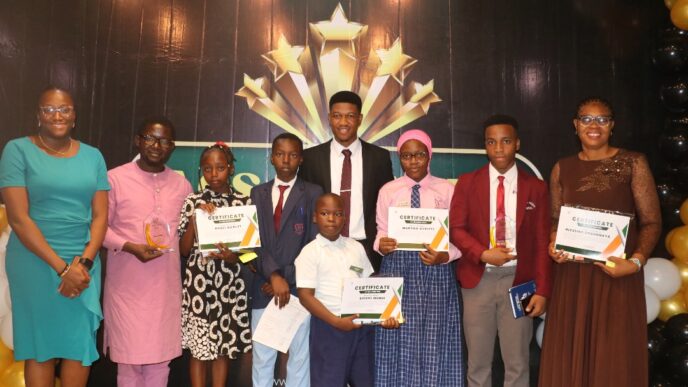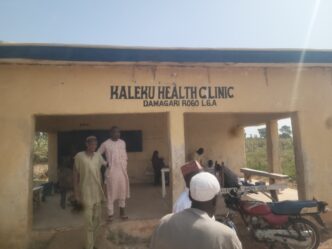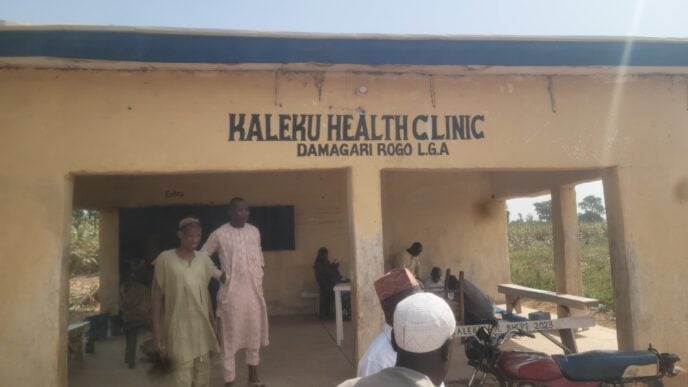Kwara State Chapter of the Coalition of Civil Society to End Child Marriage in Nigeria, during the 16 days activism against Gender-Based Violence
BY HAMEEDAH OLADIMEJI
In the quiet corners of Kwara state, Nigeria, voices once silenced by fear are beginning to rise. Women and girls, survivors of violence, are stepping forward to tell their stories. Their courage is matched by the relentless efforts of the government, lawyers, civil society organisations, religious leaders and other stakeholders, who refuse to let their plight be ignored. From legislative victories to grassroots campaigns, progress is evident, but challenges persist.
Through an exclusive interview with these frontline advocates working tirelessly together with GBV survivors in Kwara, a picture emerges of a complex landscape shaped by progress and persistent obstacles. The advocates’ narrative reveals a quiet revolution unfolding: increased awareness is bringing more survivors forward, empowered to report and seek help. Mediation, focusing on repairing fractured family dynamics and addressing economic instability, is proving effective in resolving some cases. This success speaks to the understanding that Violence Against Women and Gils, VAWG, is often rooted in a web of social and economic factors, requiring solutions that address those root causes.
However, this progress is not without significant hurdles. During one of the advocates’ interviews, a Human Rights Activist, Lawyer and a member of the Child Rights Implementation Committee{CRIC} in Kwara State, Barrister Anthonia Oshiniwe highlights a critical gap: the lack of a survivor fund for medical and legal expenses in Kwara State. Victims, often financially vulnerable, are forced to choose between their health, justice, and their very survival. While organisations like FIDA provide invaluable legal support, the lack of a comprehensive system for subsidised or free medical care leaves survivors in a precarious situation. This emphasises the vital need for government intervention and sustained funding to support survivors’ access to necessary care.
Legislative gains and institutional efforts
Advertisement
The passage of the Violence Against Persons Prohibition (VAPP) Act in Kwara in 2020 marked a significant milestone. This law addresses various forms of violence, including rape, female genital mutilation, and domestic abuse. However, legislation alone is insufficient without proper enforcement. The Chairperson, Federation of Women Lawyers Association, Kwara State Chapter, Barister Funke Balogun emphasises the role of the ministry of justice in collaboration with ministry of women affairs, which has established a 21-member committee to oversee the law’s implementation and provides shelters for survivors.
The ministry of health has also trained primary healthcare workers to recognise and promptly address cases of violence, ensuring survivors receive immediate care.
Barrister Balogun also highlighted the introduction of the Sex Offenders Register as another critical development in the fight against GBV. The register, which is publicly accessible, tracks convicted offenders and serves as a deterrent. “By making offenders’ names public, the state is protecting potential victims and ensuring that communities are aware of the dangers around them,” she said.
Advertisement
She added that the register is part of broader efforts to ensure transparency and accountability in the justice system, making it clear that Kwara is serious about curbing sexual violence.
Also, the Amira of the Federation of Muslim Women’s Associations in Nigeria, FOMWAN Kwara chapter and a member of the 21-member committee to implement sexual and gender-based violence laws in Kwara, Nimah Labaika, commended the progress made under the VAPP law, emphasising its tangible impact. She said: “Before its implementation, survivors lacked justice and perpetrators often went unpunished. Today, the law not only prescribes penalties but ensures that survivors receive necessary protection and support. Additionally, the Child Rights Law strengthens protections for children, addressing abuse and outlining punishments for violators.”

Advocacy, empowerment, and collaboration
Civil society organisations (CSOs) and women-led NGOs, such as Olive Community Development Initiative, Fulfilling Dreams Foundation, Women Environment and Youth Development Initiative, WOYODEV, and even religious-based organisations like FOMWAN, Women Wing of the Christian Association of Nigeria, WOWICAN and others are pivotal in providing psychosocial support, economic empowerment, and vocational training for survivors.
Advertisement
Labaika explains how poverty often traps victims, particularly women who are economically dependent on abusive spouses: “Even when violated, they don’t report because they fear losing financial support.”
This is why CSOs, faith-based organisations and other stakeholders collaborate to provide economic empowerment to survivors in order to create financial independence for them.
Moreover, faith-based organisations like FOMAN and WOWICAN, through sermons, impactful counselling, training sessions and other supports have been able to condemn GBV as morally unacceptable and also empower survivors of GBV.
Additionally, FIDA Kwara has been instrumental in these efforts, providing legal representation for victims, engaging in advocacy, and educating the public about their rights. “Our work goes beyond courtrooms,” Barrister Balogun said. “We collaborate with the police, social workers, healthcare providers, and community leaders to create a seamless referral pathway for handling cases of violence.”
Advertisement
She also emphasised FIDA’s commitment to justice, saying, “we ensure that offenders are held accountable. At the same time, we do not hesitate to acknowledge when women or children are at fault, as fairness is at the core of our mission.”
Femi Oyedeji, coordinator of the National Coalition of Civil Society to End Child Marriage in Nigeria, Kwara chapter, underscores the critical role of advocacy and partnerships. He credits the VAPP Act and the NAPTIP Act for addressing GBV and human trafficking but warns of the significant gaps in enforcement and cultural barriers. He said: “A whole-of-government and whole-of-society approach is essential to ensure that laws are not only enacted but implemented effectively.”
Advertisement

Challenges in law enforcement and judicial processes
Despite progress, GBV continues to thrive due to weak enforcement of laws, insufficient infrastructure, and societal stigmas. Barr. Anthonia highlights how prolonged court cases discourage survivors from seeking justice. “Many victims are forced to endure public courtroom settings, which retraumatise them and erode their trust in the system,” she explains.
Advertisement
According to Barr Anthonia, the judicial system itself presents further obstacles. The absence of specialised courts for GBV cases forces survivors to navigate a system ill-equipped to handle the trauma and complexities of such crimes. The advocate called for an urgent need for discreet, specialised courts that prioritise survivor confidentiality and sensitivity. The current system inadvertently discourages reporting and perpetuates a cycle of silence.
Oyedeji also stresses the need for more shelters and specialised courts. He said currently, most Sexual Assault Referral Centers (SARCs) and shelters are concentrated in urban areas, leaving rural victims with limited access to essential services. He advocates for expanding these facilities across senatorial districts to bridge the gap.
Advertisement
Anthonia who corroborated Oyedeji’s call on more shelters cited an example of a survivor who was being abused by her grandfather but was unable to stay in the shelter due to the distance which would affect her education. Unfortunately, the child had to be returned to the house where she was being abused.
Anthonia also called for different reception homes for children who have been assaulted sexually so that they can be separated from children who have not. She said: “We have had cases of so many children that because of the experience of the sexual abuse they have had, they have also turned to abusers and they end up abusing other children.”
Additionally, Anthonia points to financial barriers as a significant deterrent for survivors pursuing legal action. Many lack the resources to cover medical and legal expenses. “Without survivor funds, victims are left to fend for themselves, further perpetuating cycles of abuse,” she laments.
Raising Awareness: Progress and Gaps
Christie Abayomi, CEO of Global Hope for Women and Children Foundation {GLOWHOC}, acknowledges the strides made in raising awareness about violence against women. Initiatives such as international campaigns, public sensitisation programs, and media narratives have increased discourse. However, disparities persist due to cultural stigmas, lack of access to information in rural areas, and limited education on gender issues.
Survivors’ ordeal
One of the survivors of GBV in Kwara, Khadijah {last name withheld for privacy’s sake}, had her whole life turned upside down when her husband suddenly called a family meeting between her family and his one day and asked her to leave his house.
Khadijah lamented how, before the incident, her husband would always threaten to kick her out of the house whenever they have a disagreement. This emotional and verbal abuse prompted her to call him one day to express her displeasure; this did not sit well with her husband, who then proceeded to call the aforementioned family meeting.
At the meeting, her husband complained about Khadijah’s recent change in dressing which includes wearing of ‘Khimar’ {a long hijab}, which the husband claims does not sit well with his parents, adding that she has joined a particular Islamic sect.
At the end of the meeting, Khadijah was sent out of the house with the support of her parents, without her children. Khadijah’s parents not only supported the decision to send her packing, but also refused to help her get her children back or even reconcile her with her husband.
This incident affected Khadijah psychologically and she spiralled into depression. Fortunately, she found support through the Olive Community Development Initiative (OCDI), which provided counselling and economic empowerment. With time, she regained custody of her children and achieved financial independence. Khadijah’s case highlights the importance of accessible rehabilitation services and societal support for survivors.
There are many others who have similar situations like Khadijah but are unable to get the kind of help she did, due to fear of stigmatisation and other obstacles. Unfortunately, this incident has only reinforced the belief that it’s a man-world for Khadijah. According to her, women are still treated like second-class citizens who are unable to exercise their rights as much as they should.
However, she urged the government at all levels and other stakeholders to increase efforts in rehabilitating and empowering survivors of gender-based violence and ensure that they get enough counselling and therapy sessions in order to help them get back on their feet.
Rehabilitating and reintegrating survivors
Rehabilitation is key to helping survivors rebuild their lives. Programmes focus on counselling, therapy, and economic empowerment. Anthonia highlights community-based initiatives that empower women through skills training and seed grants, helping them achieve financial independence and break free from abusive situations.
Oyedeji commends collaborative efforts by CSOs, the government, and international partners in establishing SARCs and providing services such as trauma-informed counselling and legal aid.
He said the establishment of the Ajike Care Sexual Assault Referral Centre at the General Hospital Ilorin and the Sobi Specialist Hospital Sexual Assault Referral Centre has helped intensify the efforts in providing succour to survivors of GBV. However, he calls for stronger commitments to address systemic poverty, which remains a root cause of many GBV cases.
The role of media
As journalists, our role extends beyond reporting; we must amplify survivors’ voices and hold perpetrators accountable. By shedding light on these issues, we challenge societal norms that perpetuate violence and encourage open dialogue. Stories of resilience and progress like this, inspire hope and mobilise communities to demand change.
A call to action
The fight against GBV requires collective action. Governments must establish survivor funds, create specialised courts, and strengthen collaborations with CSOs. Advocacy campaigns must continue to educate communities, while efforts to empower women economically must be intensified.
Oyedeji envisions a future where women and girls live without fear, respected by all, and where justice is accessible. Together, society can build a world where every woman and girl feels safe, valued, and empowered to reach her full potential.
The courage of survivors, the dedication of advocates, and the gradual shift in societal attitudes are testaments to what can be achieved. While challenges remain, the journey toward ending violence against women and girls in Nigeria is well underway.
By working together, we can build a society where every woman and girl feels safe, valued, and empowered to reach their full potential.
Solutions and recommendations to help eradicate GBV in Kwara
- Strengthen legal frameworks and enforcement
Implement and enforce laws: Ensure the effective implementation of existing laws like the Violence Against Persons (Prohibition) Act (VAPP) and the Child Rights Act in the state
Harmonise laws: Address conflicts between customary, religious, and statutory laws that hinder justice for GBV survivors.
Fast-track prosecution: Establish special courts or processes to expedite GBV cases and ensure justice is served promptly.
- Increase public awareness and education
Community engagement: Conduct grassroots campaigns to challenge cultural norms and stereotypes that perpetuate GBV.
Educational programmes: Integrate GBV education into school curriculums to instill values of respect and equality from an early age.
Media advocacy: Use media platforms to promote messages about the negative impacts of GBV and the importance of reporting incidents.
- Empower women and girls
Economic Empowerment: Provide access to education, vocational training, and financial support to make women economically independent.
Leadership Development: Encourage and support women’s participation in leadership roles at all levels of society.
- Strengthen support systems for survivors
Safe shelters: Establish and maintain well-equipped shelters for GBV survivors in the state.
Counselling services: Provide psychological support and counselling services to help survivors recover.
Access to justice: Ensure survivors have access to affordable legal aid and support throughout the judicial process.
- Community and religious engagement
Involve Traditional and Religious Leaders: Engage these leaders to challenge harmful cultural practices and advocate for change.
Cultural Reorientation: Work with communities to replace harmful practices with positive cultural values that promote gender equality.
- Data collection and monitoring
Build databases: Establish a comprehensive database to track GBV cases and monitor progress.
Research and studies: Invest in research to understand the root causes, trends, and impacts of GBV in Kwara.
- Partnerships and funding
Government and NGO collaboration: Partner with NGOs, CSOs, and international organisations to fund and implement GBV programs.
Private sector involvement: Encourage corporate social responsibility initiatives to support GBV awareness and intervention programs.
- Enforce accountability
Zero tolerance policies: Establish and enforce policies in workplaces, schools, and communities that address harassment and violence.
Public naming and shaming: Publicise cases of convicted offenders as a deterrent.
- Men as allies
Engage men and boys: Implement programs that educate men and boys on the importance of respecting women and being allies in the fight against GBV.
- Address systemic issues
Tackle poverty: Address poverty and unemployment, which often exacerbate vulnerability to GBV.
Improve law enforcement training: Train law enforcement officers to handle GBV cases with sensitivity and professionalism.
By combining these approaches and ensuring active collaboration among all stakeholders, Kwara State can make significant progress in eradicating GBV.
Ending gender-based violence in Kwara is not just a task for governments or advocacy groups—it is a collective responsibility that calls for empathy, courage, and unwavering commitment from every citizen. Imagine a society where every woman and girl can walk the streets without fear, where homes are sanctuaries of love and respect, and where justice is swift and fair for those who suffer harm.
This vision is within reach if we unite to dismantle harmful norms, empower the vulnerable, and amplify the voices of survivors. Together, we can transform the narrative of violence into one of hope and healing, building a future where equality and dignity are not just ideals but lived realities for all.
This report is supported by the United Nations International Centre Nigeria and Analyst Communications Limited
Oladimeji writes from Ilorin, Kwara state. She can be reached via 07063969455 or [email protected]
Add a comment

